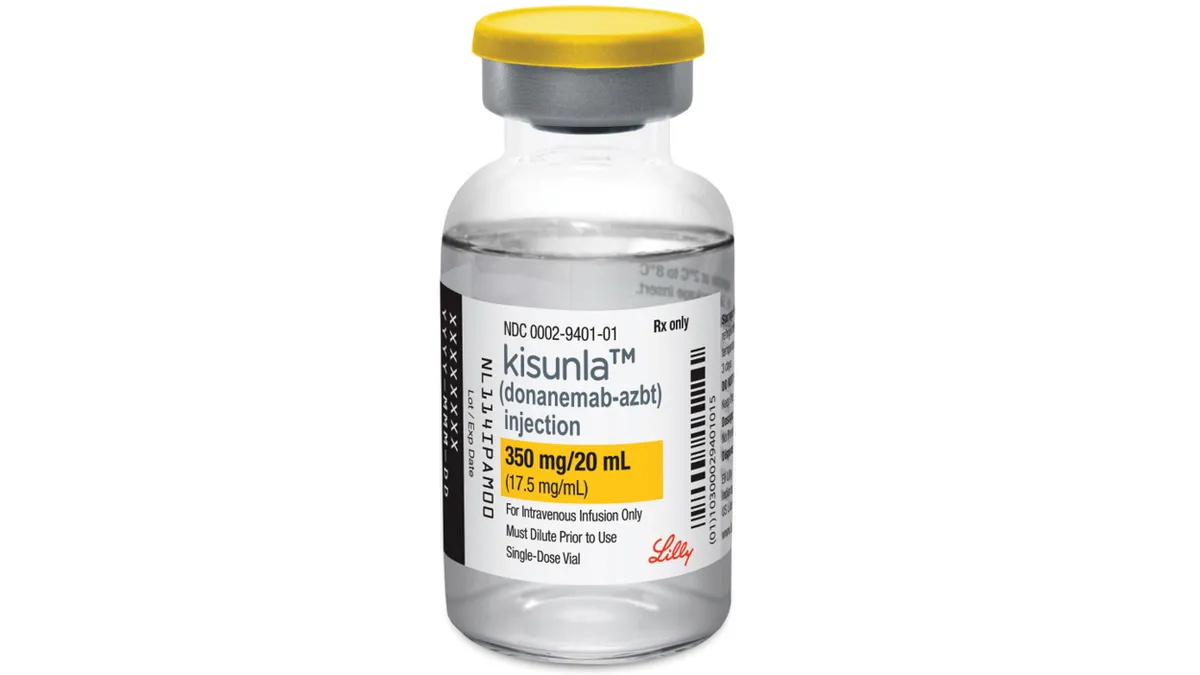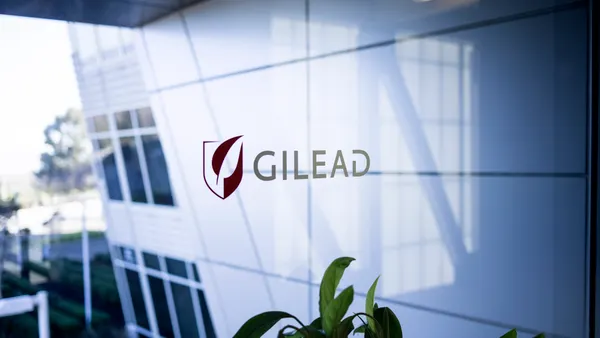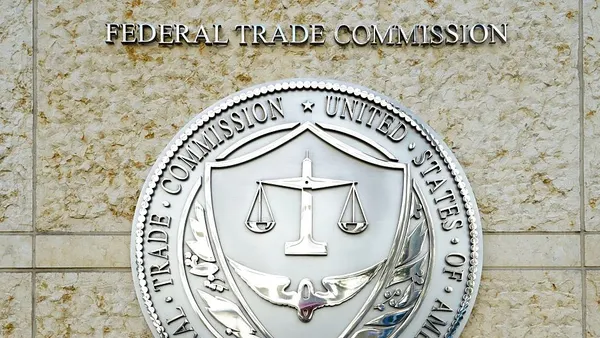Eli Lilly plans to appeal a verdict from key drug regulators who say the company’s new treatment for Alzheimer’s disease should not be cleared for the European market.
On Friday, the European Medicines Agency recommended that Lilly’s Kisunla not receive marketing authorization because its benefits don’t outweigh its potential risks. Clinical trials have shown patients with early Alzheimer’s who received Kisunla instead of a placebo experienced a roughly 20% to 30% slowing of their disease, an effect deemed modest by some doctors.
Kisunla, along with two approved Alzheimer’s therapies from partners Biogen and Eisai, is part of a class of drugs that can also cause side effects like swelling and small-scale bleeding in the brain. These effects, collectively known as “ARIA,” have been a major sticking point for regulators. Last summer, the EMA voted against one of those Biogen and Eisai products, Leqembi, due to the “frequent occurrence” of ARIA in the trials supporting its approval.
The EMA used the same language in siding against Kisunla and noted how, in clinical testing, ARIA occurred in 36.8% of people given the drug compared to 14.9% of people on a placebo. The agency said it did consider whether Kisunla might be worth recommending for patients who lack a certain gene scientists believe increases the risk of ARIA. Ultimately, though, it concluded the evidence generated so far doesn’t warrant approval.
This opinion would typically go to the European Commission, which makes the final ruling on whether new drugs can be sold in member countries. But Lilly is seeking a re-examination, a process that takes about four months and assigns different reviewers to assess the marketing application.
The odds of such appeals working aren’t great. Analysts at the investment bank RBC Capital Markets found that, over the past decade or so, the EMA’s main drug review committee has changed its mind only 20% of the time.
Lilly may have a better chance, however, since Eisai’s appeal for Leqembi was successful. In that case, the committee ended up endorsing approval for a select group of patients — those with mild cognitive impairment or mild dementia due to Alzheimer’s, who have one or no copies of that risk gene.
In a statement, the president of Lilly International, Ilya Yuffa, said the company “remains confident” in Kisunla’s safety, effectiveness and the value it could have for patients. “We hope that through the re-examination process, we will be able to continue our discussions with the agency to bring [the drug] to the millions of people across Europe suffering from this relentless, fatal disease.”
Some estimates hold that roughly 7 million people in Europe are living with Alzheimer’s. It’s a population that analysts see as commercially important for drugs like Kisunla and Leqembi. The investment bank William Blair, for example, currently expects Leqembi sales in Europe to peak at $1.3 billion in 2031.
According to Myles Minter, an analyst at William Blair who covers Biogen, the EMA’s Kisunla decision is both “unsurprising, given the initial negative opinion for Leqembi,” and an “incremental win” for Biogen and Eisai.
Yet, Minter wrote in a note to clients that late-stage trials showed higher rates of ARIA with Kisunla than with Leqembi. As such, his team thinks the probability of the EMA reversing its opinion is “materially lower” compared to the Leqembi case.
Kisunla is already approved in the U.S., U.K., China and Japan. Lilly recorded $8 million in sales from the drug over the final three months of last year.














